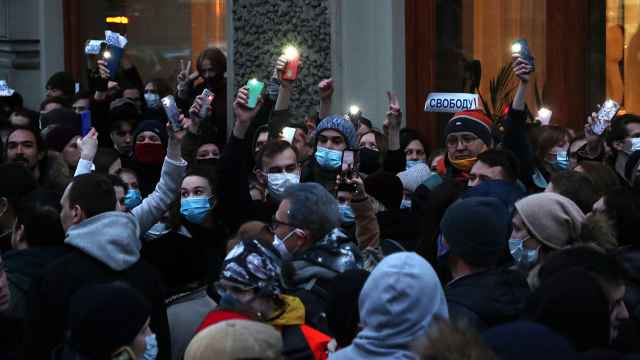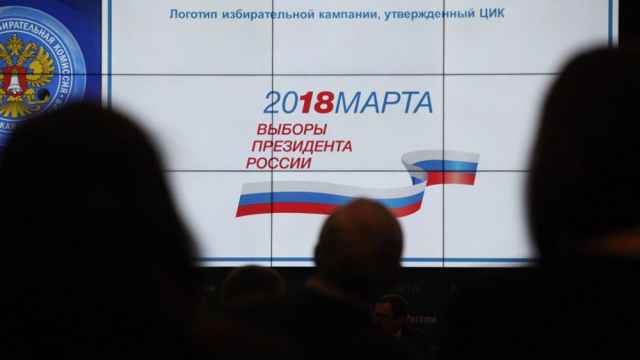Google has blocked lists of Russian candidates recommended by jailed opposition leader Alexei Navalny as best placed to defeat Kremlin-aligned politicians in parliamentary and local polls closing Sunday.
The move comes as the U.S. tech giant faces mounting criticism from the Russian opposition and abroad for backing down to demands from Russian authorities, who are trying to bring the Russian segment of the internet under their control.
The lists are part of Navalny's "Smart Voting" strategy, which calls for his supporters to vote out candidates aligned with President Vladimir Putin's ruling United Russia party in a three-day vote finishing at 8:00 p.m. Sunday.
Navalny's allies — most of whom have fled the country or been arrested after his organizations were banned as "extremist" in June — said Sunday that Google had blocked two Google Docs and two YouTube videos after requests from Russia's media regulator Roskomnadzor.
The Google Docs and YouTube videos were not accessible to AFP journalists in Russia on Sunday.
Google did not immediately respond to a request for comment from AFP.
The moves came after Google and Apple at the start of the elections on Friday removed a "Smart Voting" app from their stores.
Sources familiar with Google and Apple's decision told AFP the moves were taken under pressure from Russian authorities, including threats to arrest the tech giants' local staff.
Russia had accused Google and Apple of election interference ahead of the vote, demanding they remove the app from their stores.
Also Friday, the encrypted Telegram messenger — widely popular in Russia — followed suit, blocking a "Smart Voting" bot.
Navalny's team on Sunday swiftly made new Google Docs and YouTube videos with their lists of candidates.
"How quickly will Roskomnadzor write another request and YouTube will fulfil it? Let's see," Navalny's banned Anti-Corruption Foundation tweeted.
A Message from The Moscow Times:
Dear readers,
We are facing unprecedented challenges. Russia's Prosecutor General's Office has designated The Moscow Times as an "undesirable" organization, criminalizing our work and putting our staff at risk of prosecution. This follows our earlier unjust labeling as a "foreign agent."
These actions are direct attempts to silence independent journalism in Russia. The authorities claim our work "discredits the decisions of the Russian leadership." We see things differently: we strive to provide accurate, unbiased reporting on Russia.
We, the journalists of The Moscow Times, refuse to be silenced. But to continue our work, we need your help.
Your support, no matter how small, makes a world of difference. If you can, please support us monthly starting from just $2. It's quick to set up, and every contribution makes a significant impact.
By supporting The Moscow Times, you're defending open, independent journalism in the face of repression. Thank you for standing with us.
Remind me later.






